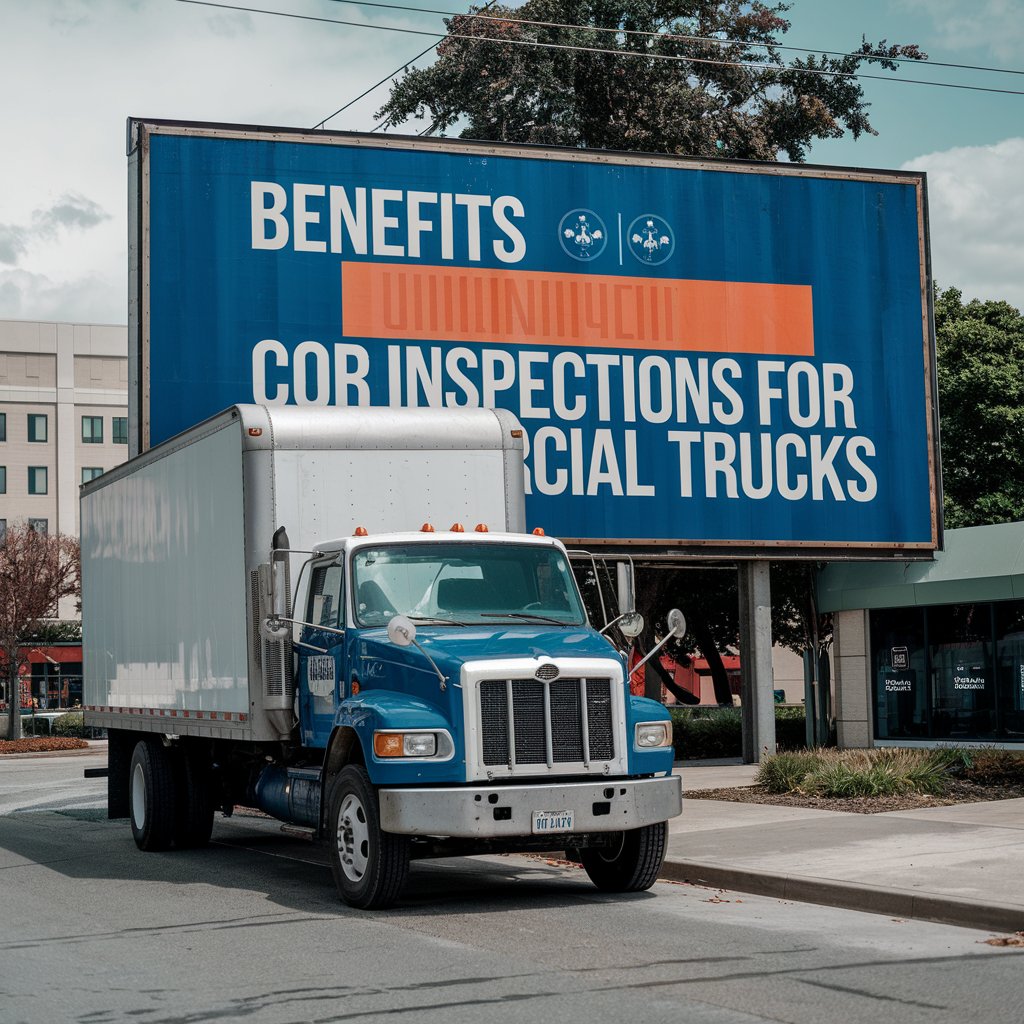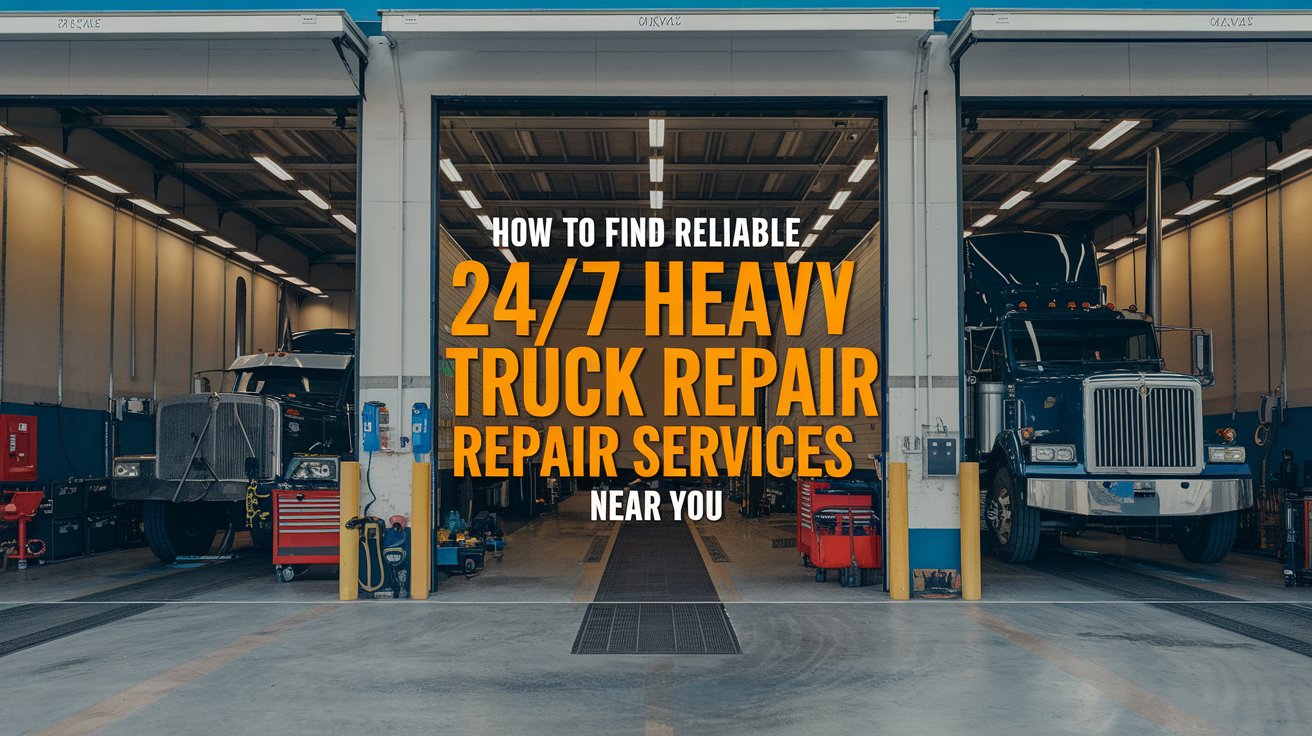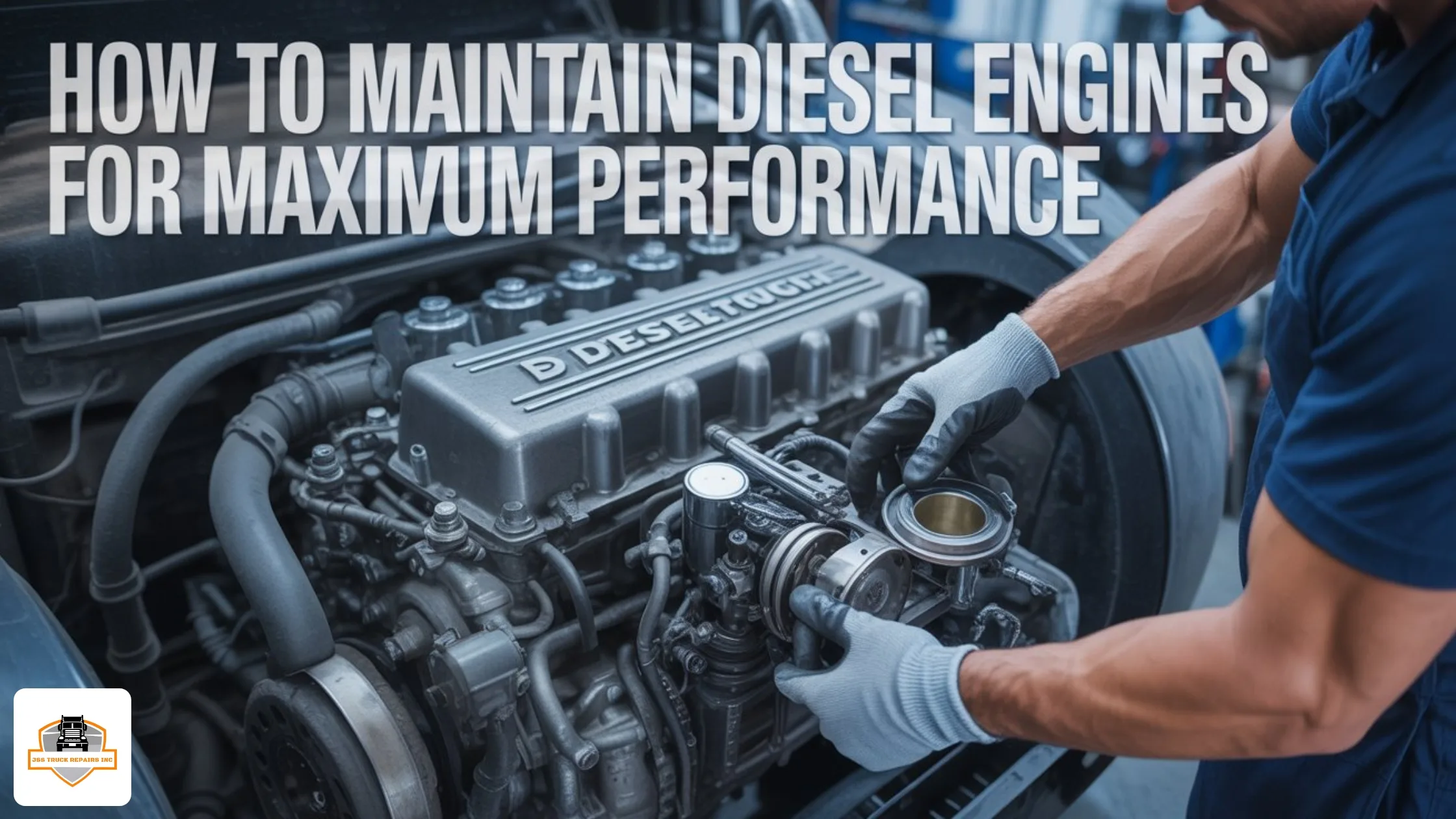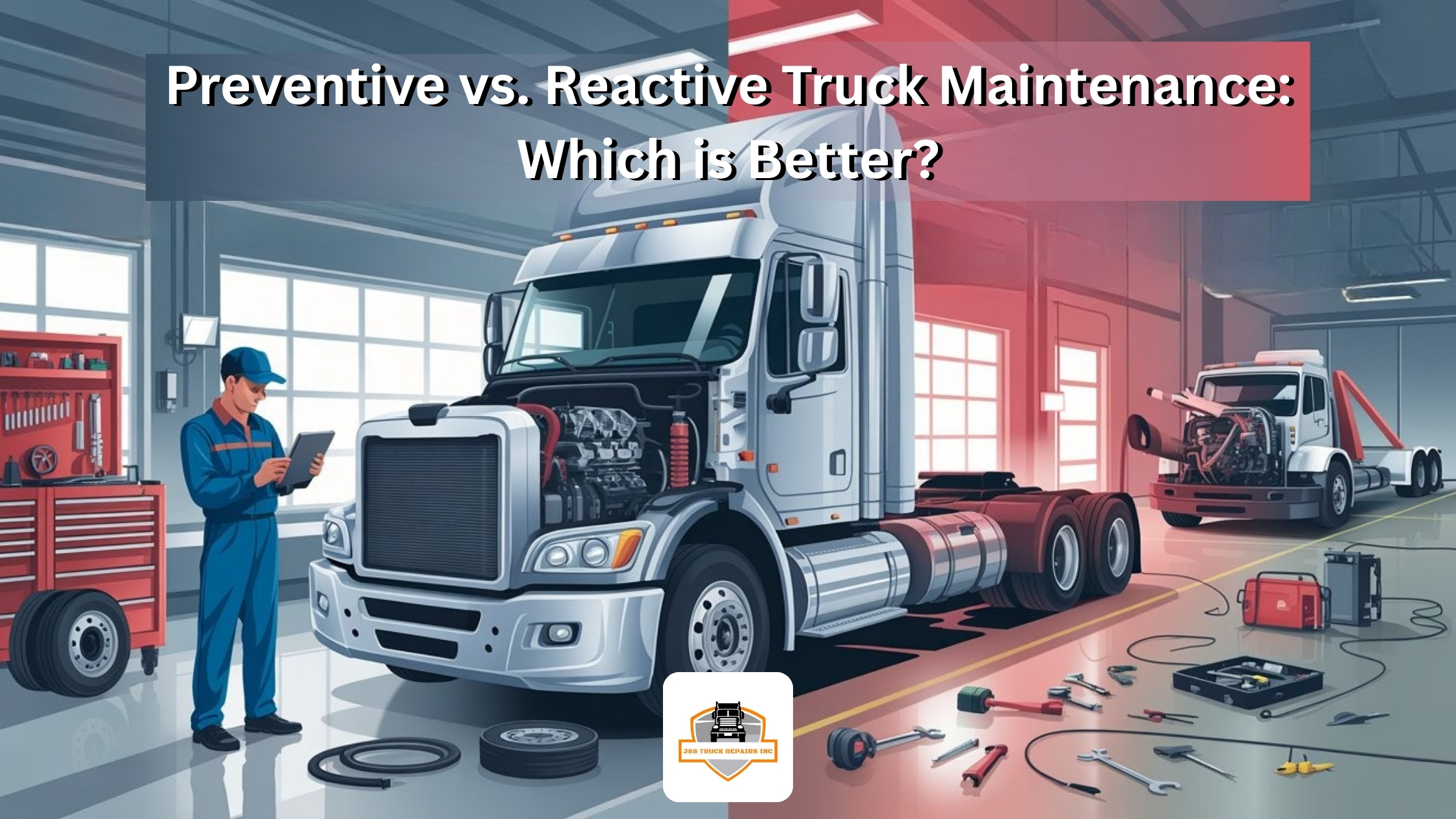Inspections for commercial trucks are not just a regulatory requirement—they are essential for maintaining safety, improving efficiency, and extending the lifespan of vehicles. Fleet managers, truck owners, and logistics companies must prioritize these inspections to avoid costly breakdowns and ensure smooth operations. In this blog, we will dive into the many benefits of regular truck inspections and explain why they are crucial for any commercial fleet.
Inspections for Commercial Trucks Ensure Road Safety
First and foremost, inspections for commercial trucks safeguard everyone on the road. Commercial trucks, due to their size and load, can cause severe accidents if mechanical failures occur. Brakes, tires, suspension, and lighting systems must function flawlessly. Regular checks allow drivers and technicians to catch problems early, preventing them from becoming serious hazards.
For instance, a worn-out brake pad might not seem urgent, but it can drastically reduce stopping power, especially under a heavy load. By conducting routine inspections, such issues can be identified and resolved promptly, reducing the risk of road accidents.

Boosts Compliance with Regulations
Inspections for commercial trucks are often legally mandated by transportation authorities. Failure to comply can lead to heavy fines, vehicle impoundment, and even loss of operating licenses. Regulatory bodies like the FMCSA (Federal Motor Carrier Safety Administration) require regular vehicle inspections to ensure public safety.
Staying compliant through regular inspections also helps during surprise audits or roadside checks. Trucks that are well-maintained and inspected routinely are more likely to pass inspections, which reduces downtime and avoids penalties. Compliance isn’t just about avoiding fines—it’s about building a reputation as a responsible and professional fleet operator.
Increases Operational Efficiency
Inspections for commercial trucks contribute significantly to operational efficiency. Trucks that break down unexpectedly cause delays, missed deliveries, and unhappy customers. However, by identifying potential issues early on, companies can schedule maintenance during downtime rather than dealing with emergencies on the road.
Moreover, regular inspections keep the fleet running smoothly. Fuel efficiency improves when engines, tires, and other components function optimally. As a result, operational costs go down, and profit margins go up. Preventive maintenance, triggered by regular inspections, ensures that the fleet remains productive and on schedule.
Reduces Long-Term Maintenance Costs
Another key benefit of inspections for commercial trucks is cost control. Ignoring minor issues often leads to major repairs later. For example, a small oil leak can escalate into severe engine damage if not addressed early. Regular inspections allow technicians to spot and fix these issues before they worsen.
By investing in routine checks, truck owners save money in the long run. Instead of paying for emergency repairs, towing, or lost revenue due to downtime, they enjoy consistent performance and fewer breakdowns. Think of it as an insurance policy—spending a little now to save a lot later.
Enhances Vehicle Lifespan
Commercial trucks represent a significant investment. Naturally, every owner wants to get the most mileage and years out of each vehicle. Inspections for commercial trucks play a vital role in achieving that goal.
When parts are maintained well and serviced on time, the vehicle performs better and lasts longer. Engines remain cleaner, tires wear evenly, and fluids stay at optimal levels. This proactive approach helps preserve the truck’s condition, ensuring a longer, more reliable service life.
Protects Drivers and Builds Trust
Drivers are the backbone of any trucking operation. Their safety and comfort should always be a priority. Inspections for commercial trucks help ensure that drivers are operating safe and dependable vehicles.
A well-maintained truck gives drivers peace of mind, allowing them to focus on the road without worrying about mechanical failures. This improves their productivity and job satisfaction. Additionally, when drivers see that their company values safety and vehicle care, it builds trust and loyalty.
Strengthens Customer Relationships
Timely deliveries and reliable service are critical to customer satisfaction. Inspections for commercial trucks contribute to this by reducing unexpected delays. When trucks run efficiently and without hiccups, deliveries happen on schedule.
Clients appreciate consistency. A company that maintains its fleet well sends a strong message about reliability and professionalism. Over time, this builds stronger relationships with customers and improves brand reputation.
Promotes Environmental Responsibility
Well-maintained commercial trucks are more eco-friendly. Regular inspections ensure that emissions systems are functioning correctly and that engines burn fuel efficiently. This reduces the carbon footprint of the fleet.
As environmental regulations become stricter, companies that prioritize inspections and maintenance position themselves as responsible and forward-thinking. Not only do they comply with laws, but they also contribute to sustainability—a value that resonates with many modern consumers.
Prevents Downtime and Revenue Loss
Every minute a truck is off the road costs money. Missed deliveries, idle drivers, and disrupted schedules impact the bottom line. Inspections for commercial trucks help avoid such losses by catching potential problems before they cause downtime.
Preventive maintenance based on inspection results ensures that repairs are planned and that trucks remain operational when needed most. This level of planning improves resource management and keeps revenue flowing.
Encourages Accountability Across the Fleet
Regular inspections promote a culture of accountability. Drivers become more aware of their vehicle’s condition and more likely to report issues. Technicians stay engaged with routine maintenance schedules. Fleet managers gain insights into the performance and reliability of each vehicle.
This collective accountability leads to a more organized and efficient operation. Everyone has a role to play in maintaining high safety and performance standards.
Conclusion
Inspections for commercial trucks are the foundation of a safe, efficient, and profitable transportation operation. They protect drivers, reduce costs, improve customer satisfaction, and help fleets comply with regulations. Most importantly, they prevent small issues from becoming major problems.
In today’s competitive logistics industry, overlooking inspections isn’t just risky—it’s costly. By making regular inspections a standard practice, companies position themselves for long-term success.
Whether you manage a small fleet or oversee a national network, never underestimate the power of a thorough, consistent truck inspection program. Start today, and the benefits will roll in for years to come.








